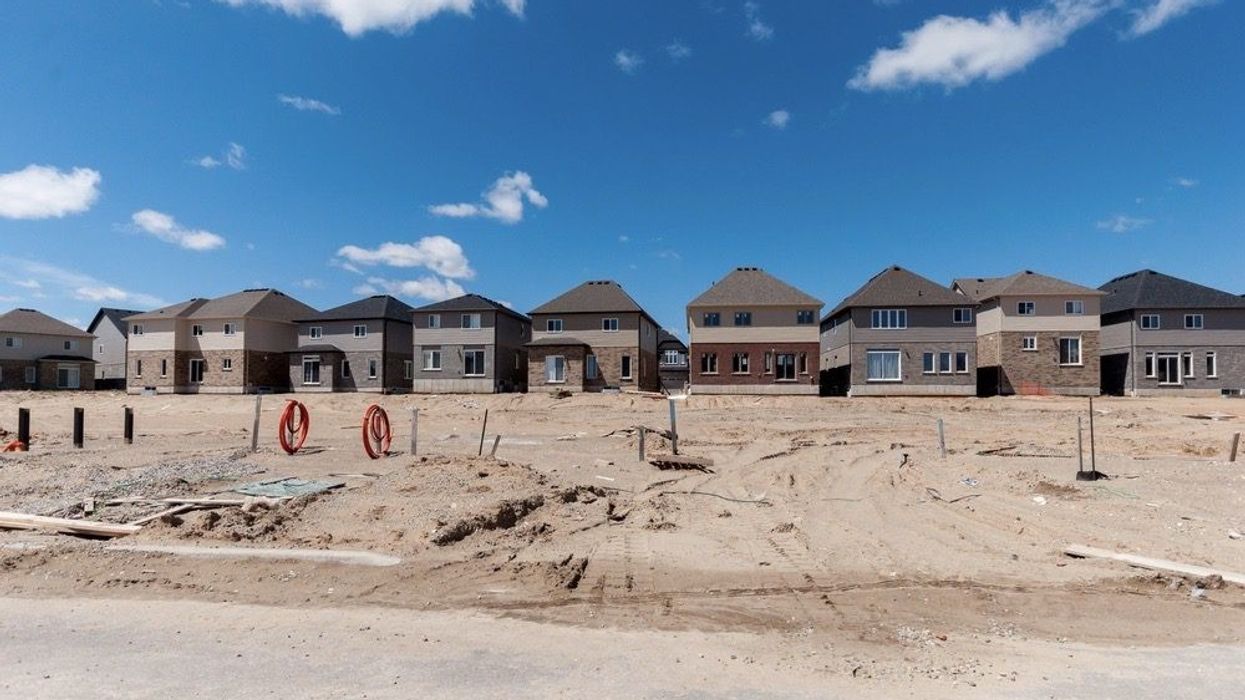New home sales in the Greater Toronto Area declined by 21% in March from the same period a year ago but were still 12% above the10-year average, the Building Industry and Land Development Association (BILD) and Altus Group reported.
“Total new home sales remained relatively strong in March,” said Edward Jegg, Research Manager at Altus Analytics, Altus Group. “But signs of slowing are emerging, as higher interest rates alongside record prices start to impact demand.”
READ: The Feds Have Pledged They'll Build 100,000 New Homes. But At What Cost?
Nevertheless, new condo sales, which include low-, medium- and high-rise buildings as well as stacked townhouses and lofts, totalled 3,277 in the GTA last month, decreasing by 7% from March 2021. The number of new condo transactions was still 34% above the 10-year average.
Nine condo projects opened last month, according to the BILD and Altus data, but demand was so robust that remaining inventory declined to 7,220. That marked the tenth consecutive month in which there was a year-over-year decrease in remaining inventory, signifying that the condominiums in the GTA are in demand.
Single-Family Home Inventory Half of Last Year's Levels
The single-family home segment of the GTA’s new build market, which encompasses detached, linked, semi-detached and townhouses, totalled 838 transactions in March, exactly half the number of sales in March 2021. The number of single-family sales last month was also 32% below the 10-year average.
Single-family home inventory cleaved in half to 830 units in March from the same month last year, which BILD and Altus noted was low even then. The remaining inventory is also comprised of units in pre-construction developments as well as projects currently in construction, and in completed buildings.
The benchmark price of a new condo in the GTA rose by 17.7% year over year to $1,252,515 in March, while new single-family homes surged by 27.3% during the same period to $1,838,396 -- however, that’s down from $1,858,713 in February.
Moreover, a report last week from RBC Economics echoed Jegg’s statement that Toronto’s housing market has become so expensive that, as interest rates increase, prices will begin falling. Despite low housing supply, RBC expects the market to rebalance.
“On the supply side, the starting point is almost universally tight with inventories at historically low levels,” the report from RBC Senior Economist Robert Hogue. “There are essentially no signs of imminent oversupply or overbuilding anywhere in the country. We expect strong housing construction and cooling demand to rebalance the market over time, not send it into a tailspin.”





















